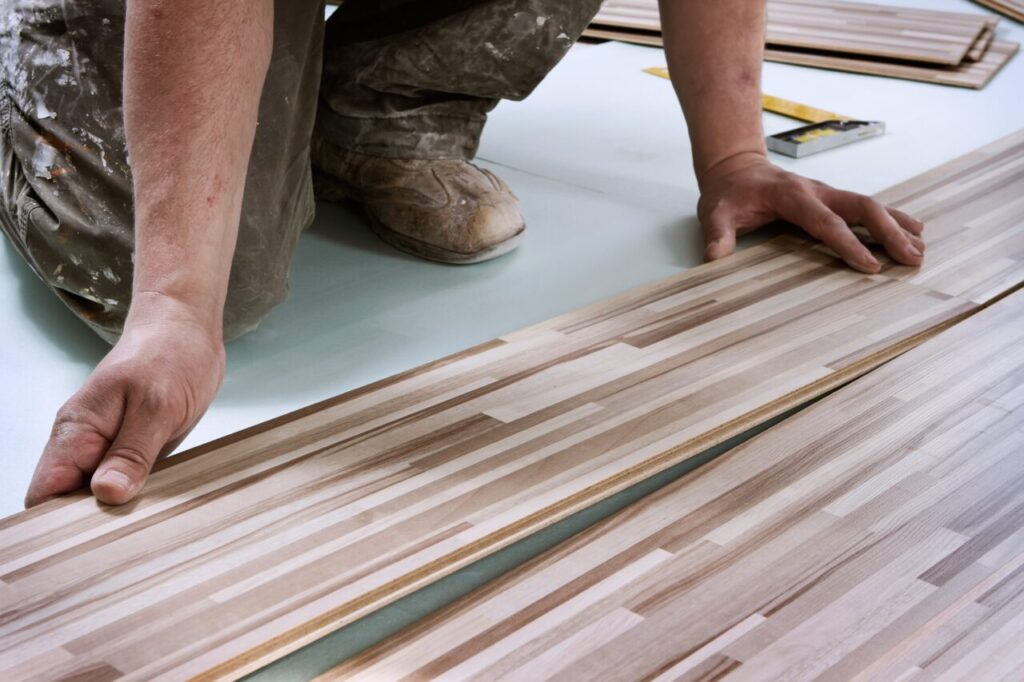The terms “renovation” and “remodel” are often used interchangeably. But it’s essential to understand the difference between these two types of projects, especially if you’re planning improvements for an existing home or a property you plan to purchase. While both a renovation and a remodel will ultimately improve a home’s living space and market value, each comes with its own set of advantages and drawbacks to consider before you decide which project is right for you.
Renovation generally refers to updating the look and feel of a space with cosmetic changes — without altering the intended purpose. For example, you might refresh a kitchen with new flooring, countertops, paint, fixtures, appliances, and cabinetry, but leave the footprint or floorplan intact. Renovating might also include some restoration if you’re working with a historic home and are prohibited from making substantial changes to the existing structure.
Remodeling involves altering the functionality of a space in order to change its intended use, its traffic flow or to improve a poor design. A wall might be torn down to convert a closet into a master bath, or the layout of a kitchen could be reconfigured to improve flow. Remodeling can also involve expanding the footprint of the home with an addition.
Before you make any home improvement commitments, consider consulting an experienced real estate agent who can pull a comparable market analysis (or CMA) for your area to help you determine which home improvement projects will give you the greatest return on your investment. The same advice applies to investors looking to renovate and flip a home for profit, or reinvest in another property with a 1031 exchange.
It’s worth noting that the costs of renovating or remodeling on personal property are not tax deductible, but changes made to an investment property often are. Consider meeting with a tax professional before getting started on any projects, so you can see how the outcome might affect your tax burden.
Renovation or remodeling: Which costs more?
Costs can vary widely with both types of home improvements, but remodeling typically requires a bigger budget than renovating. Prices will depend on how much of the home you’re remodeling (a room or two, or a top-to-bottom gut?) and the existing condition of the home. A remodel will usually require a team of professionals — potentially an architect, contractor, and subcontractors. And because you’re changing the physical structure of a space, remodeling often entails moving or adding electrical wiring, plumbing, HVAC, or building out an entirely new structure — work that almost always requires pulling permits. Final costs for a remodeling project will factor in the scope of work and the quality of the materials (wood, flooring, paint, appliances, cabinetry, hardware, lighting, etc.).
Renovations are usually less complex and, therefore, lend themselves more easily to DIYers and smaller budgets. Painting, adding new light fixtures, replacing windows, installing new floors or tile, or refacing cabinets are examples of renovation projects that don’t typically require permits in most communities. And they can be done by a homeowner who has the time and skills to do the work themselves.
Roofing is one renovation exception (roofing projects are considered renovations because a new roof does not change the existing structure) that in most communities often requires a permit and professional installation.
Which brings a better return on investment?
Because renovation projects usually cost less, and more often involve updating or repairing a home’s existing features, renovation projects tend to provide a better return on investment (ROI) when a homeowner sells their house.
Remodeling Magazine’s annual Cost vs. Value report 2021 lists the best improvement project for ROI as replacing a garage door (93.8% of costs recouped), adding stone veneer siding (92.1% recouped), and a minor kitchen renovation (72.2% of costs recouped). Other projects that deliver a solid ROI include window replacement, a deck addition, and steel entry door replacement.
Ultimately, the choice between remodeling or renovating comes down to cost, needs and your
long- or short-term goals. Renovating can be budget-friendly and take less time. Remodeling, while generally more expensive and time-consuming, might still be cheaper than buying a new property — and with the right design, could turn your existing house into the home of your dreams.
Best Home Improvement Projects To Complete This Winter
Be a Smarter Homeowner Podcast: Ep 006 – Managing Home Improvement Projects


